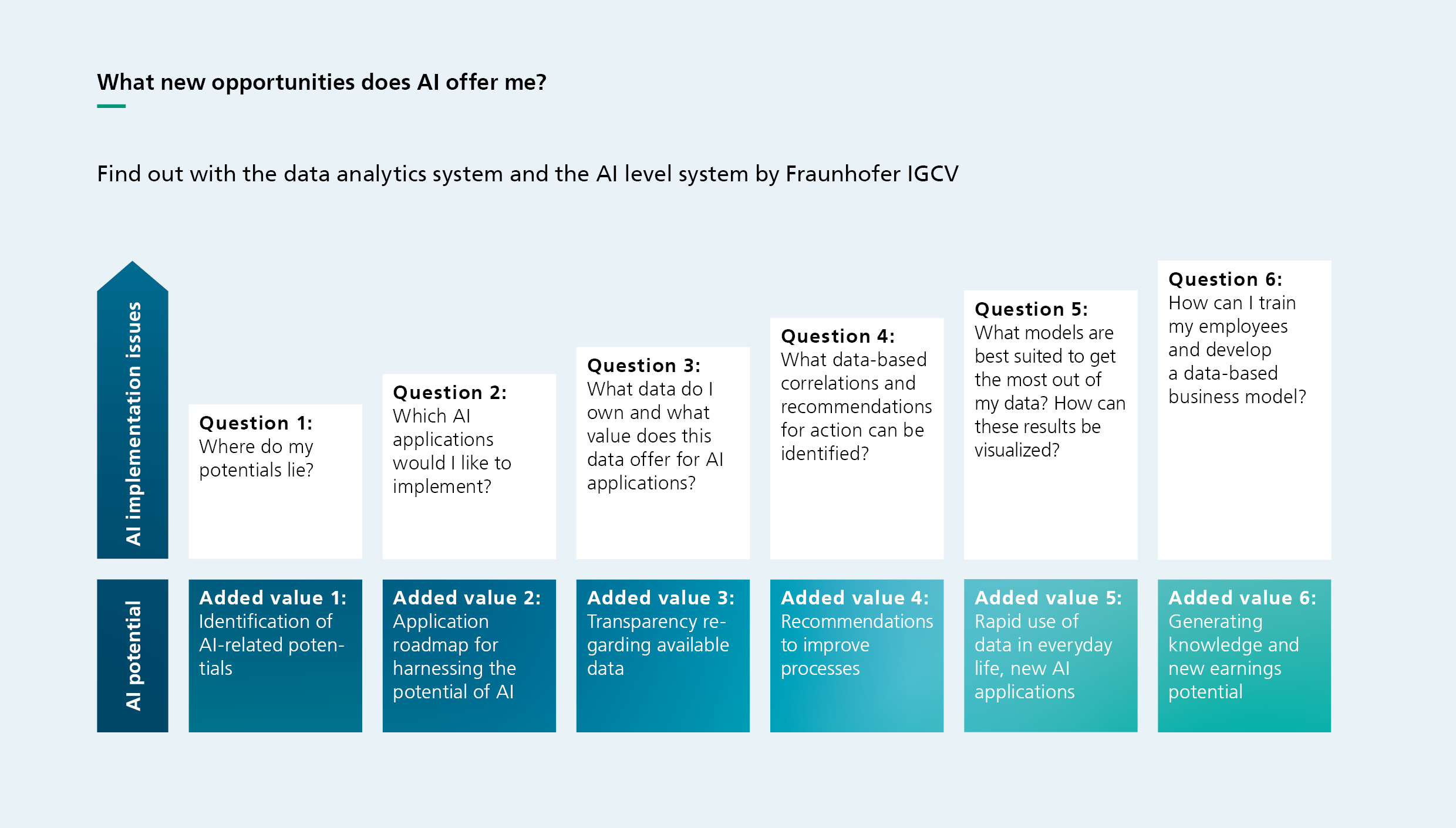Smarter production – with artificial intelligence
Artificial intelligence (AI) is one of the most promising technologies of our time. It is a key technology for the competitiveness of Germany and Europe. Company processes and business models can be fundamentally changed and optimized by artificial intelligence and machine learning to enable sustainable and intelligent production.
Not only can employees be supported by AI in complex analyses, but processes can also be intelligently controlled. Data-driven process modeling can improve product quality and reduce scrap rates. Due to the digitalization of manufacturing and production processes, the amount of data collected is growing. This opens up a wide range of potentials, for example, in the field of automated modeling, online condition monitoring, anomaly detection, adaptive control systems, and simulation technology, etc. Human-robot collaboration and interaction (MRC, MRI) also play an important role in industrial production. Industrial robots are becoming smarter, more flexible, and safer through AI. In addition, efficiency and flexibility in production can be increased through AI-supported process optimization, predictive maintenance, and quality assurance (keyword »Industry 4.0«).
Contact at Fraunhofer IGCV: Dr.-Ing. Martin Feistle | Clemens Gonnermann
